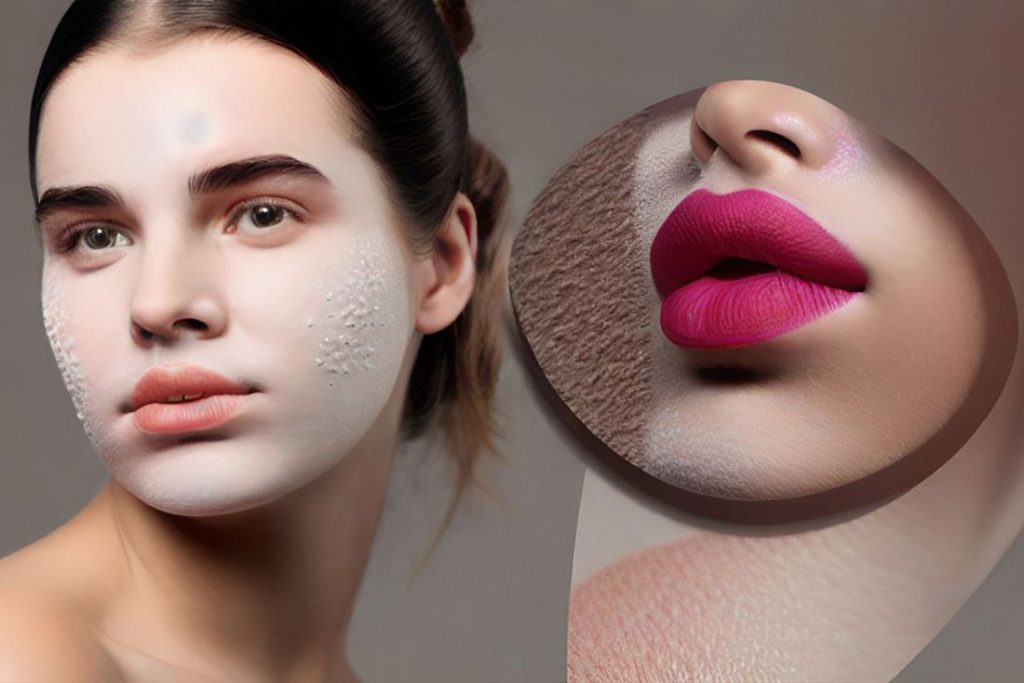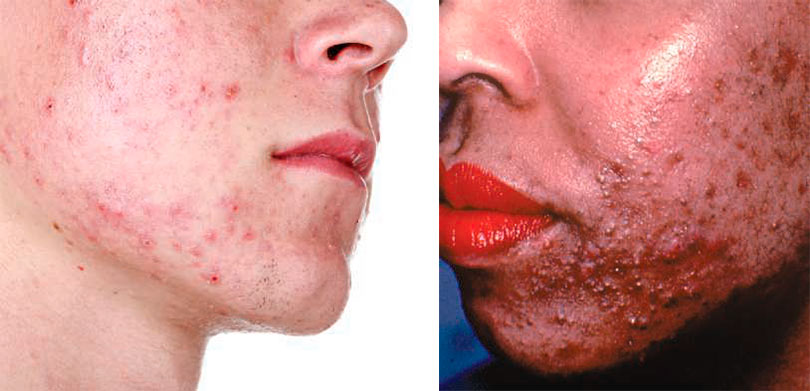Acne Vulgaris: An Indepth Guide for Cosmetologists
Acne vulgaris, more commonly known simply as acne, is a prevalent skin condition worldwide. Recognized for the profound impact it can have on an individual’s self-esteem and overall quality of life, acne presents unique challenges and responsibilities to cosmetologists in their practice. This comprehensive article aims to shed light on acne vulgaris, its etiology, and the role of a cosmetologist in helping clients manage this complex skin condition.

Acne Vulgaris
Understanding Acne Vulgaris
Acne is a skin disorder typified by chronic inflammation of the sebaceous glands resulting from the retention of secretions and the presence of a particular type of bacteria called Propionibacterium acnes (P. acnes). The condition usually manifests as a variety of skin lesions, including comedones (whiteheads and blackheads), papules, pustules, nodules, and, in severe cases, cysts. These can appear anywhere on the body but are most commonly found on the face, back, and chest, areas with a high density of sebaceous glands.

Pathogenesis of Acne Vulgaris
Several factors contribute to the development of acne vulgaris:
- Sebum Production: The condition often begins with an increase in the production of sebum, an oily substance that lubricates the skin and hair. This overproduction is typically stimulated by hormonal changes, especially during puberty, pregnancy, or periods of stress.
- Hyperkeratinization: Another contributing factor is an abnormal shedding of skin cells, or hyperkeratinization, which leads to the clogging of hair follicles.
- Bacterial Growth: The clogged follicles provide an ideal environment for the growth of P. acnes, a bacteria that is part of the skin’s natural microbiota. When these bacteria multiply, they can cause inflammation and swelling, resulting in acne lesions.
- Inflammation: The body’s immune response to the growing bacteria further exacerbates the inflammation, leading to the characteristic red, swollen, and sometimes painful bumps on the skin.
The Role of a Cosmetologist in Managing Acne Vulgaris
As professionals in the skin and beauty industry, cosmetologists play a pivotal role in managing acne vulgaris:
- Identification: Cosmetologists need to be adept at recognizing acne and differentiating it from other skin conditions. This understanding is crucial in advising clients on suitable skincare routines and products.
- Education: Cosmetologists serve as educators, explaining the factors contributing to acne and debunking prevalent myths, such as the misconception that acne is caused by dirty skin or certain foods.
- Skincare Guidance: Cosmetologists can provide clients with tailored skincare advice, such as recommending gentle cleansing routines, advocating for the use of non-comedogenic products, and discouraging practices that may worsen acne (like picking or squeezing pimples).
- Referral: In cases of severe acne or when the condition does not respond to over-the-counter treatments, cosmetologists should refer clients to a dermatologist or other healthcare professional for further assessment and treatment.
Acne vulgaris, while common, is a complex skin condition that requires a multifaceted approach. Cosmetologists are well-positioned to help clients understand and manage their acne, offering skincare guidance, debunking myths, and referring to medical professionals when necessary. By enhancing their knowledge of acne vulgaris, cosmetologists can better serve their clients and contribute positively to their skin health and confidence.






